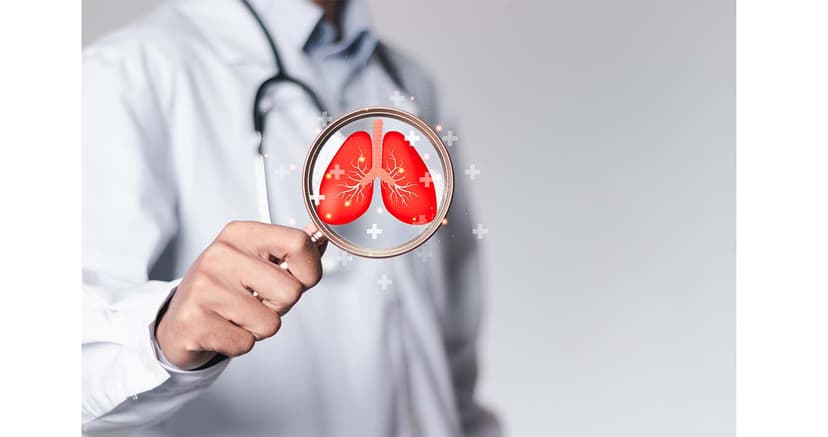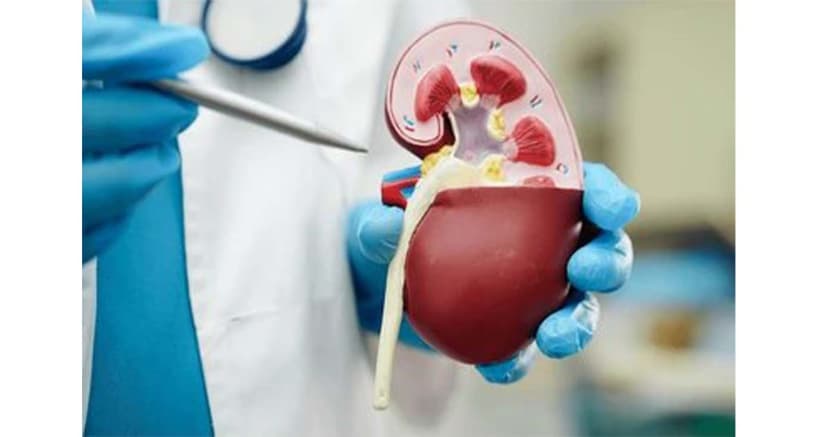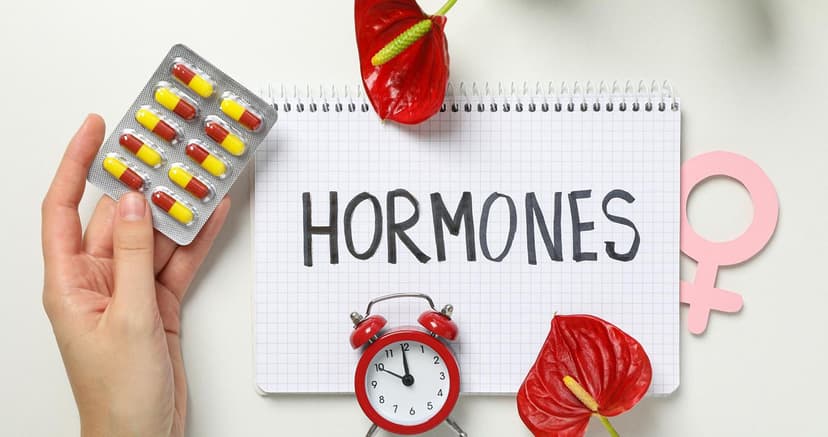Empowering Women's Health: Essential Tips for Every Life Stage
By:

Apex Hospitals
22-12-2023 5 Min Read

Ensuring optimal health is essential for everyone, with added importance for women due to physiological and hormonal changes. As women, we frequently place the well-being of others above our own, allowing self-care to take a back seat. Juggling the responsibilities of family, work, and societal expectations, women often deal with external pressures, such as societal norms dictating dietary choices. This blog post aims to impart essential health and wellness advice tailored to various life stages of a woman, offering insights to empower women in maintaining both their physical and emotional well-being.
Understanding Women’s Health
Understanding women's health involves recognizing the unique biological, physiological, and psychosocial factors that influence women's well-being throughout their lives. Women's health encompasses more than just reproductive well-being; it includes the complete spectrum of physical and mental health, acknowledging the unique differences between women and men. Women's bodies have specific needs influenced by different structures, hormonal changes, and life stages, including menstruation, pregnancy, and menopause. Additionally, women are susceptible to particular health concerns such as osteoporosis, urinary tract problems, breast cancer, and mental health issues like depression and anxiety. When developing a self-care regimen, it's essential to consider these factors to uphold comprehensive health.
What is self-care?
The World Health Organization (WHO) defines self-care as “the ability of individuals, families, and communities to promote health, prevent disease, maintain health, and cope with illness and disability with or without the support of a healthcare provider.”
Self-care involves
1. Self-Management:
Taking charge of medication, treatment, examinations, injections, and administration.
2. Self-Testing:
Conduct independent sampling, screening, diagnosis, collection, and monitoring activities.
3. Self-Awareness:
Embracing self-help, self-education, self-regulation, self-efficacy, and self-determination.
It's crucial to note that self-care doesn't mean individuals have to manage all aspects of their healthcare without support. Instead, it emphasizes empowering people to handle specific aspects of their healthcare at their discretion.
Recent advancements in simplified tests, treatments, point-of-care devices, and mobile technology have significantly enhanced the feasibility of self-care. This can offer substantial benefits, particularly for women and girls.
Physical self-care
1. Physical Activity and Well-Being:
Regular physical activity is fundamental to maintaining good health, offering many benefits that positively impact women's well-being.
- Heart Health and Disease Prevention:
Regular exercise is pivotal in sustaining a healthy heart and circulatory system. By elevating the heart rate, exercise strengthens the heart muscle and enhances efficiency, reducing the risk of heart disease and stroke. Moreover, consistent physical activity regulates blood pressure and cholesterol levels, delivering an overarching protective effect on heart health.
- Improving Bone Health:
Participating in physical activities, especially weight-bearing exercises like walking, jogging, and strength training, is essential for preserving bone density. This is particularly significant for women who face an elevated risk of developing osteoporosis.
- Recommendation and Routine:
Aiming for a minimum of 150 minutes of moderate-intensity exercise each week is advisable. This allocation can be conveniently distributed, such as 30 minutes daily for five days. Additionally, incorporating strength-training exercises at least twice a week is recommended to foster muscle and bone strength development. Exercise must be enjoyable and seamlessly integrated into one's lifestyle to ensure long-term consistency. This may include activities like a brisk walk in the park, swimming, or dance classes.
2. Nutrition
During childhood, nutritional needs are uniform for both genders. However, as females enter puberty, their dietary requirements escalate due to physical and hormonal transformations.
Hormonal changes, menstruation cycle, pregnancy, and menopause cause changes in the female body, underscoring the significance of a nourishing diet. Despite women requiring fewer calories than men, there is an elevated demand for more vitamins and minerals to meet these specific nutritional needs.
- Balanced diet:
A balanced diet includes a variety of foods that collectively provide the necessary nutrients the body needs to function optimally. This typically involves incorporating a mix of appropriate proportions of carbohydrates, proteins, fats, vitamins, and minerals.
- Calcium and Vitamin D:
Post menopause, women face an elevated risk of osteoporosis owing to reduced oestrogen levels. Incorporating calcium and vitamin D into their self-care regimen is crucial. Calcium plays a pivotal role in supporting bone health, while vitamin D aids the body in absorbing calcium effectively. Dietary sources of calcium include dairy products, leafy greens, and fortified foods. Meanwhile, ensuring adequate exposure to sunlight and including foods like fatty fish and egg yolks in their diet helps women obtain sufficient vitamin D, promoting overall bone health.
3. Regular health check-ups
Engaging in routine health checks and preventive screenings is integral to proactive health management, fostering early detection and timely intervention.
1. Preventive Screenings:
Importance:
Screenings are crucial in identifying health issues before they escalate, significantly increasing the likelihood of successful treatment. For women, several mandatory screenings are pivotal:
- Mammograms for Breast Cancer:
Early detection through mammograms is critical for identifying breast cancer in its early stages, offering better treatment outcomes.
- Cervical Screening for Cervical Cancer:
Regular cervical screenings, such as Pap smears, aid in detecting abnormal cell changes and preventing the development of cervical cancer.
- Bone Density Tests for Osteoporosis:
Assessing bone density is essential, especially for postmenopausal women, to detect and manage osteoporosis, a condition characterized by weakened bones.
2. Regular Health Check-ups:
Importance:
Regular health check-ups provide a comprehensive overview of an individual's well-being, allowing for early detection and personalized health guidance. These check-ups typically encompass the following:
- Blood Pressure Measurements:
Monitoring blood pressure is crucial for assessing cardiovascular health and preventing conditions like hypertension.
- Cholesterol Level Checks:
Regular checks of cholesterol levels aid in identifying potential cardiovascular risks, allowing for preventive measures to be implemented.
- Other Health Assessments:
- Personalized Advice:
Tailored assessments based on age and personal health history ensure a holistic understanding of an individual's health, covering a range of factors.
Regular health check-ups offer a valuable opportunity to discuss health concerns with a healthcare professional, obtaining personalized advice and guidance tailored to individual needs.
Discover more about the diverse health screening packages offered at Apex Hospitals for a thorough and inclusive health assessment.
Mental Self-care
- Managing Stress:
Unchecked stress can lead to various physical and mental health issues. To manage stress effectively, consider these practices:
- Mindfulness and Meditation:
Mindfulness involves focusing on the present moment without judgment and alleviating scattered thoughts linked to stress and anxiety.
Meditation fosters a clear and calm mental state, reducing stress and enhancing concentration, self-awareness, and emotional well-being.
- Regular Hobbies and Creative Activities:
Engaging in enjoyable activities provides an effective stress-relief method. Whether reading, painting, gardening, cooking, or any other joy-inducing activity, these pursuits offer a break from stressors, boost mood, and instil a sense of accomplishment.
Incorporating mindfulness, meditation, and enjoyable activities into your routine can significantly reduce stress and support physical and mental well-being.
Self-care in different stages of a woman’s life
1. Teenage life (13-17 years)

The teenage years mark a crucial period of rapid growth and development, making adequate nourishment essential for laying a solid foundation for women's health. Here are some essential nutrients and dietary recommendations to support this critical phase:
- Essential for healthy teeth and bones, include foods like yoghurt, and vegetables, and consider supplements to ensure sufficient intake of calcium and vitamin D.
- Support muscular growth with a diet rich in protein. Include poultry, fish, eggs, and plant-based sources like beans and tofu.
- Ensure an adequate intake of iron to prevent anaemia and promote healthy blood. Include red meat, chicken, beans, and iron-fortified grains.
- Promote whole-body health by incorporating diverse fruits and vegetables, providing essential vitamins, minerals, and antioxidants.
- To support proper bodily function and maintain overall health, stay hydrated by drinking plenty of water.
2. Young adults (18-24 years):

Nutrition is pivotal for females transitioning into adolescence and early adulthood, particularly considering this stage's growth spurts and hormonal changes. Here are some essential considerations for meal planning during this crucial period:
- Ensure reproductive health by incorporating folic acid-rich foods into your diet. Beans, vegetables, and fortified grains are excellent sources to meet this essential requirement.
- Promote healthy hormone levels and support mental growth by including avocados, almonds, and olive oil in your diet.
- Maintain steady energy levels and a healthy hormone balance by reducing the consumption of sugary beverages and processed meals.
- Incorporate whole grains into your diet as they provide sustained energy and are rich in fibre, aiding digestion. Include brown rice, oats, and whole wheat for lasting vitality.
3. The Middle Years (25-49 years)
1. Pregnancy and postpartum:

- Regular prenatal check-ups are crucial for monitoring the health of both the mother and the baby. These check-ups enable the early detection of complications and allow for necessary interventions, ensuring the well-being of both.
- A nutrient-rich diet is paramount during this period as it supports the baby's optimal development and maintains the mother's health. Prioritizing good nutrition contributes to a healthy pregnancy and lays the foundation for the well-being of both mother and child.
- Hormonal changes during and after pregnancy can significantly impact mood. Being aware of these changes and proactively seeking mental health care can prevent conditions such as postpartum depression. Addressing mental health is integral to fostering a positive and supportive environment for the mother and the baby.
This period marks a time of profound physical and emotional transformations. Prioritizing appropriate self-care is essential to support the health of both the mother and the baby.
2. Menopause:
As women enter menopause, hormonal changes significantly impact various aspects of their health.
- The decline in oestrogen levels during menopause increases the risk of osteoporosis in women. To counteract this, it's crucial to ensure an adequate intake of calcium and vitamin D. Additionally, incorporating regular exercise into the routine is essential for maintaining bone health.
- Health checks are pivotal in the early detection and management of age-related conditions such as heart disease, osteoporosis, and cancers. At Apex Hospitals, we provide specialized services tailored for our female patients, featuring experts in their respective fields.
- Maintaining a healthy diet and staying physically active are critical strategies for managing menopausal symptoms and promoting overall health. Adopting these lifestyle choices contributes not only to symptom management but also to the general well-being of women during this phase of life.
3. Later years (≥50 years old)

- Addressing bone health in women becomes particularly crucial during this stage of life. The groundwork for optimal bone mass is laid during youth. It continues into the twenties, marking when individuals achieve the most significant amount of bone in their lifetime, known as peak bone mass. Following this peak, there is a gradual decline in bone mass, making it imperative to prioritize bone health measures during these formative years and beyond.
- Antioxidant-rich fruits and vegetables play a significant role in slowing down the aging process.
- Incorporating omega-3 fatty acids into your diet benefits brain and heart function. Boost your intake of flaxseeds, walnuts, and fatty salmon for these positive effects.
- As the sensation of thirst may diminish with age, ensuring adequate water intake throughout the day becomes essential. Controlling portion sizes aids in weight maintenance and effective fat management.
At Apex Hospitals, we're committed to empowering women at every life stage. Discover invaluable tips for optimal health tailored to your unique journey. From preventive care to mental well-being, we've got you covered. Book your appointment now.
FAQS
Related Articles
Connect With Us
Health In A Snap, Just One App.
KNOW MORE




































































































